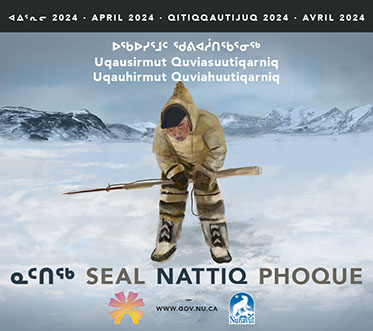Ottawa extends health top-up fund by two years
“It’s really very important to us”

Nunavut health minister Tagak Curley speaks with reporters in Iqaluit Aug. 24. Curley said the two-year extension of a federal health care funding program will allow Nunavut to fund medical travel and community health training. (PHOTO BY CHRIS WINDEYER)
The federal government is extending by two years a funding agreement designed to pay front-line health services and medical travel in Nunavut and the other two territories.
Prime Minister Stephen Harper made the announcement in Yellowknife Aug. 25, midway through his annual Arctic tour.
The Territorial Health Systems Sustainability Initiative was to run out at the end of March, 2012. The new deal, worth $30 million per year, will extend the program until 2014.
“This is about working with the territories to ensure northern families can get the medical attention they need near their homes thereby reducing the costs, time and travel of being treated further south,” Harper said in a statement.
In a news release, the three territorial premiers praised the work of Leona Aglukkaq, Nunavut’s MP and the federal health minister, in supporting the project.
Nuanvut Premier Eva Aariak said the initiative helps the territories provide health care of a similar quality to that available in the south.
“The… initiative helps to achieve this standard by offsetting the high cost of medical travel and building on capacity at the community level to reduce long-term reliance on the health care system,” Aariak said in a statement.
Speaking to reporters in Iqaluit, Nunavut health minister Tagak Curley said Nunavut will get about $32 million of the $60 million extension.
Curley said more than $20 million will fund medical travel and the rest will go to existing training programs for health centres in the communities.
“It’s really very important to us because we were… not able to fund all our obligations, particularly medical travel,” Curley said, adding the funding agreement likely helped prevent budget cuts as the GN continues to grapple with a multi-million dollar budget deficit.
Curley said the three territorial health departments had been lobbying Ottawa for an extension to the program since shortly after Harper’s Conservatives won a majority government May 2.
The original plan was a five-year, $150-million fund launched in 2005 and extended in the 2010 federal budget. It’s run by a working group of high-ranking health officials from the federal and territorial governments.
On Aug. 24, Harper visited Agnico-Eagle’s Meadowbank gold mine near Baker Lake.
The previous day he was in Resolute Bay, where he met with community members and first responders involved in the rescue and recovery efforts of First Air flight 6560 on Aug. 20.

Prime Minister Stephen Harper is joined by Floyd Roland, premier of the Northwest Territories, Eva Ariaak, premier of Nunavut, and Dennis Pasloski, premier of Yukon, Aug. 25 in Yellowknife, as he announces an extension of the Territorial Health System Sustainability Initiative. The money pays for front-line health services and medical travel in Nunavut and the other two territories. (PHOTO BY DEB RANSOM, PMO)




(0) Comments